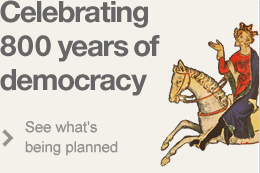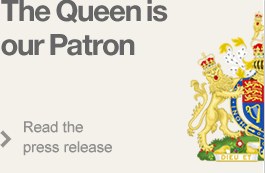Just one member of the Twenty Five was represented in the list in an official capacity, and that was the Mayor of London, William Hardel. His inclusion affords clear proof of the key role which London had played in the rising that brought King John to the negotiating table in 1215. London was by far the largest and most important city in England by the early thirteenth century, a major centre of national and international trade, and the country’s social, political and economic capital in all but name. The moment when the Londoners opened their gates to the rebels, lending them their support and, perhaps more crucially, their money, constituted a turning point in the struggle between King John and his opponents, indicating to the king that he was in danger of losing his kingdom and that it was time to compromise. The Londoners’ reward for their backing of the rebellion came in clause 13 of the Charter, which said, albeit without much precision, that the city was to have all its ancient liberties and free customs both by land and by water. On 19 June, four days after the making of the Runnymede pact, the barons, realising that their control of London was their trump card, made a treaty with the king which used its return as a tool to secure his compliance with the new agreement. The treaty laid down that the barons were to continue to hold London, and the Archbishop of Canterbury the Tower, until 15 August, by which time the oaths to the Twenty Five were to be exacted throughout the realm and the king was to meet all claims against him to the restoration of rights and property. If all this was carried out by 15 August, then the capital and the Tower were to be restored to him. In the event, the conditions were not met, and city and fortress remained in the barons’ temporary guardianship.
The mayor of London, with whom the barons began their negotiations in the spring of 1215, was one Serlo the Mercer. Later in the year Serlo was replaced by the new Mayor, William Hardel, who had served as sheriff in 1207-8, and who headed a vintner dynasty with holdings in Vintry and Bishopsgate Wards. On the baronial side the lead in the negotiations was probably taken by Robert FitzWalter, the self-styled ‘Marshal of the Army of God’, who was lord of Baynard’s Castle in the City, and therefore in some sense a Londoner himself. Serlo and William and their fellow merchants remained steadfast in their support for the rebel cause in the war to come. When Prince Louis landed in England in May 1216, he made the decision to head straight for London. Serlo and four other citizens, all office-holders, when approached, personally raised the sum of 1,000 marks (about £666), which they supplied for his use. On 2 or 3 June in St Paul’s churchyard the citizens, led by FitzWalter and Hardel, rendered homage to the French prince. In the wake of the settlement negotiated at Kingston in September the Londoners returned to the royalist allegiance.
The Hardels themselves were at the peak of their prosperity in the early thirteenth century. By Edward I’s reign their fortunes were in decline, and the bulk of their property had been acquired by Gregory de Rokesle, a wealthy goldsmith and vintner. There was a high turnover in the elite in medieval London and great mercantile dynasties rarely flourished for very long.
By Professor Nigel Saul, Royal Holloway, University of London.
Featured Article
When you were kind enough to ask me to speak this evening I was Master of the Rolls and as such ex officio Chairman of the Magna Carta Trust. The Magna Carta Trust is a charitable body devoted to increasing knowledge of and...
Read on...Recent Articles
- Magna Carta's American Adventure
- 800th anniversary of Bristol...
- Bristol 800 concert and...
- Emancipation and Magna Carta
- Terrorism and Tolerance -...
- Magna Carta
- Magna Carta Benches mark...
- ABA Magna Carta Memorial...
Stay updated
If you would like to keep informed about the work of the Magna Carta Trust and our partners, please sign up to the newsletter below.
Become a Supporter
There are a number of significant supporter opportunities. Register your interest early to ensure the widest range of options.
Find out more




